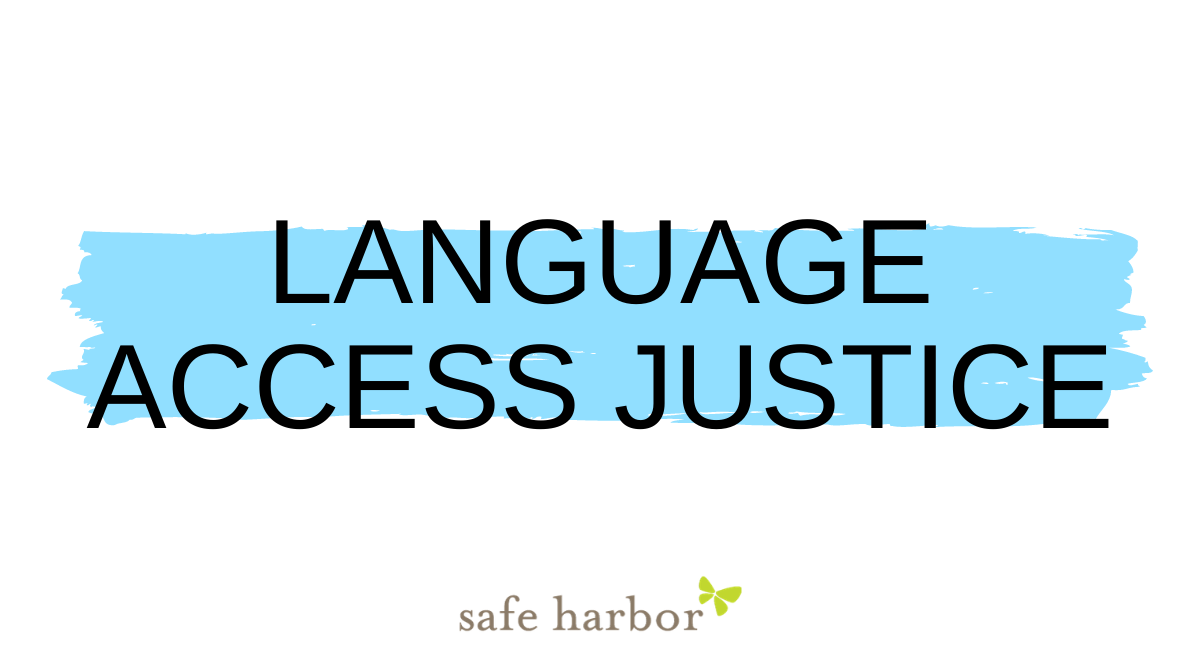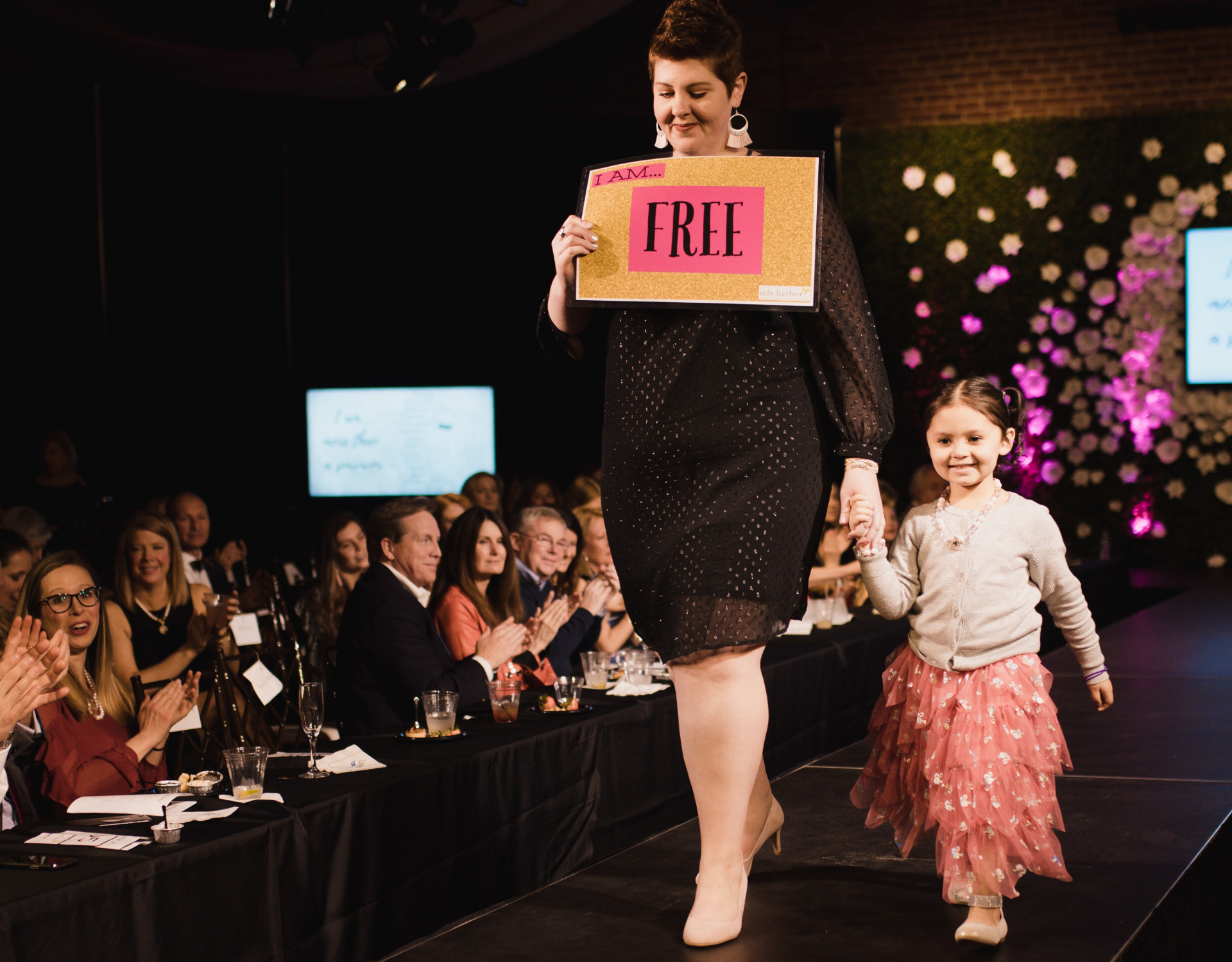As the need for victim service organizations to prioritize inclusivity becomes more apparent, at Safe Harbor we recognize that becoming an inclusive, diverse, and anti-racist organization includes language access justice.
Anyone can experience domestic violence yet we see time and time again that people experiencing intimate partner violence and other forms of oppression do face increased barriers to finding help. This results in disproportionate rates of intimate partner violence for different communities, for example…
- Black women are 3 times more likely to be murdered by men than White women.
- People in the LGBTQ+ community experience domestic violence at the same rates or even higher than their heterosexual and cisgender counterparts.
- People with disabilities are also more likely to be harmed by those closest to them.
- 48% of immigrant Latinas reported that the abuse from their partner increased when they immigrated to the U.S.
Immigrant communities face many difficulties such as language barriers, being unfamiliar with healthcare, legal, and governmental systems, being isolated from their support systems, and having to navigate an entirely different culture.
“Our communities are very tightly knit and we often rely on support from our network of friends and family to help meet our needs. But what happens when someone needs help for harm that is coming from within that network? What happens when asking for help might risk unraveling at least part of that network and may even lead to someone being ostracized from the community they have built from scratch to survive in a world foreign to them?” – Ana Castellanos, Bilingual Outreach Coordinator
The importance of language access in the Upstate of South Carolina is becoming increasingly evident with the rapid growth of the Latinx population. The census shows us that from 1990 to 2000, the Hispanic or Latino population was the fastest growing segment of the population, increasing by the rate of 371%, and today making up nearly 10% of the populace. With this increase comes a greater need for bilingual professionals who are able to provide their services in Spanish.
Safe Harbor employs multiple bilingual staff, including a Community Counselor, a Community Advocate, two Family Advocates, a Client Support Specialist, two Shelter Relief Staffs, a Prevention Coordinator, and an Outreach Coordinator. Most of our bilingual staff speak English and Spanish, with a couple speaking Arabic as well. From just January 2019 until mid-October 2020, Safe Harbor has served over 100 non-English speaking clients across our services. We are able to provide further language access thanks to support from the South Carolina Coalition Against Domestic Violence and Sexual Assault (SCCADVASA).
“SCCADVASA is committed to increasing accessibility of services to all survivors in South Carolina. We support our member organizations, like Safe Harbor, by providing interpretation and document translation services. By removing barriers, advocates can focus on providing inclusive, culturally sensitive, trauma-informed services. We believe in elevating the voices of all people impacted by domestic and sexual violence and creating safer communities for everyone.” – Marie McDonald, Language Access & Trafficking Survivor Coordinator at SCCADVASA
In this complicated world where our clients are often facing multiple barriers, how can we end domestic violence without also addressing those barriers such as racism, fear of deportation, and language access? The reality is that we can’t. Having bilingual employees is essential to our mission of providing a continuum of services to victims of domestic violence and their children. We understand that having bilingual employees can make all the difference and can be the determining factor on whether someone will call our helpline or not.





